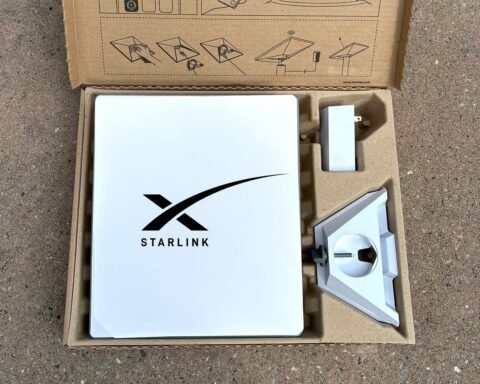Can Dogs Eat Peanuts? Understanding the Risks and Benefits
Wondering if Can Dogs Eat Peanuts? This comprehensive article provides insights into the risks and benefits of feeding peanuts to dogs. Find out how to ensure your furry friend’s safety and well-being.
Introduction
Peanuts are a popular snack for humans, but can dogs safely enjoy this delicious legume? As responsible pet owners, it’s essential to be aware of what foods we can share with our furry companions. While some human foods are safe for dogs, others can be toxic and even life-threatening. In this article, we’ll dive deep into the topic of whether dogs can eat peanuts or not. We’ll explore the potential health risks, benefits, and guidelines for incorporating peanuts into your dog’s diet safely. So, before you share that handful of peanuts with your pup, let’s find out if it’s a paws up or paws down situation!
Can Dogs Eat Peanuts?
Dogs are omnivores, which means they can consume a variety of foods. In theory, dogs can eat peanuts as they provide essential nutrients such as protein, healthy fats, and vitamins. However, there are several important factors to consider before giving peanuts to your canine companion.

Potential Risks of Feeding Peanuts to Dogs
- Choking Hazard: Peanuts are small and hard, which can pose a choking hazard, especially for small breed dogs or those prone to gulping food quickly.
- Allergic Reactions: Just like humans, dogs can be allergic to certain foods, including peanuts. Allergic reactions may manifest as itching, swelling, hives, or more severe symptoms like difficulty breathing.
- Fungal Contamination: Peanuts can sometimes be contaminated with aflatoxins, which are harmful substances produced by certain molds. Dogs are more sensitive to aflatoxins than humans, and ingestion can lead to serious health issues.
- High-Fat Content: Peanuts are high in fat, which can lead to pancreatitis in dogs, especially if consumed in large quantities.
- Salt and Seasonings: Salted or seasoned peanuts are not suitable for dogs. Excessive salt intake can lead to sodium ion poisoning, causing vomiting, diarrhea, tremors, and even seizures.
Benefits of Feeding Peanuts to Dogs
- Protein Source: Peanuts are a good source of plant-based protein, which is essential for muscle maintenance and overall health in dogs.
- Heart Health: Peanuts contain heart-healthy fats, such as monounsaturated fats, which can benefit your dog’s cardiovascular system when given in moderation.
- Vitamin E: Peanuts are rich in vitamin E, an antioxidant that helps protect cells from oxidative damage.
Guidelines for Safely Feeding Peanuts to Dogs
- Consult Your Veterinarian: Before introducing peanuts or any new food into your dog’s diet, consult your veterinarian to rule out any potential health risks or allergies.
- Choose Unsalted and Unseasoned Peanuts: Opt for plain, unsalted, and unseasoned peanuts to avoid any harmful additives or excess salt.
- Moderation is Key: While peanuts can offer some health benefits, they should only be given to dogs in moderation. Too many peanuts can lead to digestive upset and weight gain.
- Avoid Moldy Peanuts: Never feed your dog moldy peanuts, as they may contain harmful aflatoxins.
- Monitor for Allergic Reactions: Watch for any signs of allergic reactions, such as itching, swelling, or difficulty breathing, and seek immediate veterinary attention if necessary.
- Consider Peanut Butter: If you want to treat your pup to peanuts, consider giving them natural, unsweetened peanut butter as it is easier for dogs to consume and digest.
FAQs (Frequently Asked Questions)
Q: Can dogs eat peanut shells? A: No, peanut shells are not safe for dogs to consume. They are hard to digest and can potentially cause gastrointestinal blockages.
Q: Are there any peanut products that are toxic to dogs? A: Yes, products containing xylitol, a sugar substitute, are toxic to dogs. Check peanut butter labels to ensure it does not contain xylitol.
Q: How many peanuts can I give my dog? A: It is recommended to give peanuts as an occasional treat and in small quantities. A few plain peanuts should suffice for most dogs.
Q: Can dogs with allergies eat peanuts? A: Dogs with known allergies should not be given peanuts. If your dog has food sensitivities, consult your veterinarian before introducing peanuts to their diet.
Q: Can I give my dog flavored peanuts? A: No, flavored peanuts often contain seasonings, additives, and high levels of salt, which are not suitable for dogs.
Q: Is peanut butter safe for dogs? A: Natural, unsweetened peanut butter without xylitol is generally safe for dogs. However, it should be given in moderation due to its high-fat content.
Conclusion
In conclusion, while peanuts can be a healthy and nutritious snack for humans, they should be approached with caution when it comes to dogs. The potential risks, such as choking hazards, allergies, and aflatoxin contamination, must be considered before sharing peanuts with your canine companion. If you decide to give peanuts to your dog, remember to follow the guidelines discussed in this article and always consult your veterinarian beforehand. By making informed choices, you can ensure your furry friend’s safety and well-being while enjoying the occasional peanut treat together.







